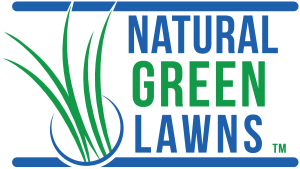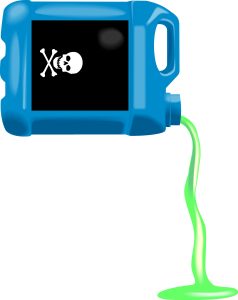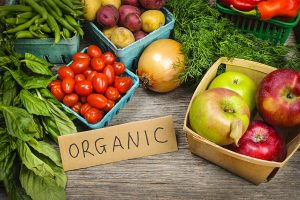Natural GREEN Lawns – We Are Never Satisfied
Research & Development
At Natural GREEN Lawns, we take organic lawn care very seriously. We’re never satisfied!

Our team is constantly at work testing the latest organic soil amendments, fertilizers and additives. Our goal is to deliver the best products, processes and services in the lawn care industry. Period! We work closely with the Union County Agricultural Center, the outreach arm of NC State’s College of Agriculture, as well as the NC Composting Council where we serve on the Board of Directors. At Natural GREEN Lawn, R&D has been and will always be a top priority. Our customers deserve the best!
Fertilizers and Soil Amendments
Our organic fertilizer and soil amendment applications rely primarily on composted chicken manure as the base. “The grass is always greener under the chicken coop” is more than just a saying, it’s the truth. Composted chicken manure contains a natural balance of nitrogen and potassium, along with a wide variety of secondary and micro nutrients essential to a healthy soil. Due to the composting process, this base fertilizer contains significant amounts of carbon, the essence of organic. “Traditional” chemical fertilizers contain only synthetic N-P-K and filler products. This results in a soil practically devoid of microbial life and deficient in vital nutrients. It’s one reason organic produce contains as much as 20% more nutritional value than mass-farmed, chemically treated produce. The soil is just better.
Soil Amendments
Several of our annual applications are soil amendments. They include ingredients such as molasses, brewer’s yeast, and yucca extract. These are designed to feed and stimulate the microbial life we are building in your soil. These applications directly add billions of dormant but healthy microbes directly to your soil. Once they find a home in your soil, their life cycle begins. The goal is to create microbial diversity that naturally aerates the soil and improves porosity. This results in soil with improved water retention capabilities, increased disease resistance and better air exchange capacity, among other things.
Fertilizer Applications
During the growing season, based on each specific grass type, we apply slow release, high nitrogen fertilizers. These balanced fertilizer applications contain a cocktail of secondary and micro nutrients such as calcium, zinc and iron, but with limited phosphorus to protect our waterways. We may supplement these applications, depending on grass type and weather conditions, with additional fertilizers to assure faster nourishment uptake and greening.
pH Adjustment
If our soil test analysis finds the soil pH is off, and we tend to see acidic soil in the Carolinas, we will apply a premium, 100% organic limestone-based treatment that also contains several chelating agents. The chelating agents in this fast-acting formula provide for improved nutrient uptake at the root level, and thus healthier grass. We do not apply the cheap lime found in the big box stores. We feel our customers deserve better.
Other
Depending on the results of our soil sample analysis, we will modify our formula applications to correct any deficiencies that may exist in a specific lawn.
Our Two Programs
Natural GREEN Lawns has two organic-based programs:
Transition to Organic
For customers in our “Transition to Organic” plan, we apply preemergent weed controls as needed, but in an environmentally responsible and limited manner. Timing is everything as it relates to weed control. We do not want any preemergent present when our cool season grasses such as Bermuda or Zoysia come out of dormancy. The reason is that it will slow the growth and natural “spreading” of these grasses. For Fescue, we look to retard the germination of weeds in the spring and summer. We do not want any pre-emergent present come aeration and over seed season in the Fall which would limit seed germination. As the year goes on we spot-treat seasonal weeds, as needed, to prevent those weeds from spreading. We never broadcast-spray lawns with post emergent herbicides as we find that environmentally irresponsible.
Naturally Organic
For our “Naturally Organic” customers, we have an organic weed killer that is amazingly effective. It is, however, non-selective meaning it will kill all growing plants that contact it. When cool season grasses are dormant, we use this organic weed control because it has no impact on dormant grass. This product, despite its potency, breaks down almost immediately and leaves no environmental impact. It is so gentle, we can even over seed immediately after application.
Our Goal at Natural GREEN Lawns
Our goal at Natural GREEN Lawns is to significantly reduce and even eliminate the use of synthetic chemicals and pesticides. The way we do this is to foster a thick healthy carpet of grass that naturally controls weeds. Germination of grass or weed seeds requires three things: Contact with soil, moisture, and sun. If sun is unable to reach the surface of your soil, weed seeds will not germinate.
The transition to an organic lawn from a synthetic chemical lawn is a seamless one for the homeowner.
After year one, your soil will come back to life with an active microbial ecosystem. Water retention will increase. A healthy organic lawn requires less irrigation, saving you money every month. Your organic lawn will be more capable of handling exterior stresses such as temperature extremes and drought. It will also become more disease resistant.
By year two, most if not all the chemical buildup that occurred from synthetic chemical fertilizers will have disappeared. Your soil’s microbial life will be even more active. This will naturally deter and even eliminate unwanted lawn pests such as ants and grub. The need for chemical insecticides, if you use them, will be reduced or even eliminated. In terms of watering, your soil will be naturally more porous and spongy, and better able to retain water. This will allow you to further reduce weekly watering to about once per week.
When year three rolls around, your lawn will be on auto-pilot. We’ll continue feeding your soil, adding essential primary, secondary and micro nutrients to nourish your grass. At this point, we may be able to further reduce the use of weed controls of all kind. You may even opt out of core aeration for a year, saving you money! We’ll be in contact with you about all these options.
Pesticides in Our Bodies?
At Natural GREEN Lawns, we try to focus on the Safety Aspects and the Value Proposition of having an organic-based lawn, or as we like to call it, a Natural GREEN Lawn. We typically avoid highlighting potential health impacts from the broadcast use of dangerous herbicides and synthetic chemicals. Scare tactics are not our thing. What we’ve found is that once folks understand how organic lawn treatments work, it become a no-brainer. Well, when it relates to pesticides in our bodies, we’re making somewhat of an exception.
Pesticides in our Bodies – How They Get There
There are many ways that pesticides and other unwanted chemicals can enter our body. These problems caused by these pesticides can be either immediate or long term. One way they enter our bodies is through the food we eat. Pesticides can reside on the surface of a cherry tomato or within the body of the fruit, for example. Pesticides and unwanted chemicals can also enter our bodies through our lungs. Pesticide spraying can be a culprit. Industrial fumes are another. Pesticides and unwanted chemicals can enter our bodies by being absorbed by our skin. These chemicals can enter our bodies directly should we touch our mouth, nostril or eyes. Avoid all of these.
Well, we came across the following fun and informative video by an organic supermarket in Sweden named Coop. It related to reducing pesticides in our bodies, and thought we would share it.
Research Project
The video is called “Organic Effect” and follows a typical family of five living in Sweden. As part of a research project, that family allowed researchers to fully switch their typical non-organic diet, essentially the things we all regularly purchased at a supermarket, to a 100% organic alternative. The duration of the “switch” was only two weeks. Prior to beginning, the family, children and all, provided urine samples to the research team. Each family member was found to have numerous pesticides inside their bodies. This included certain insecticides, certain fungicides and other plant-growth regulators. The family members provided urine samples again once the two-week research term was completed. The research team scrubbed and analyzed the data. What the results showed, after only two weeks, was quite startling.
Research Results
After only two weeks, every member of the family showed a significant reduction in pesticide levels in their bodies. These include 3-PBA (3-Phenoxybenzoic acid) and TCP (1,2,3-Trichloropropane), an ingredient used to produce chemicals such as Dichloropropene, a soil fumigant.
From the research we’ve conducted, the experiment and video appear legitimate. It does have its detractors though. Call us cynical, but many of the detractors probably work for the big chemical companies that profit from the manufacture of those materials. While most do not dispute the results of the experiment, they believe it’s misleading. We’ll explain…
What is a Pesticide
Let’s begin by offering up a definition of a pesticide. A pesticide is a substance used to destroy organisms harmful to cultivated plants. A cultivated plant is grown for food and eventual human consumption. A cultivated plant can also be used as feed for livestock designed for human consumption. Simple enough.

Going back to pesticides, these are substances used to destroy organisms harmful to cultivated plants. These organisms include plant-destroying insects and unwanted fungi, for example. Pesticides, therefor, include herbicides (week killers) and insecticides (insect killers.) Detractors to this video would argue that regular household items such as vinegar, mineral oil and onion spray should therefore also fall into that category of pesticide. They argue that while chemical pesticides used in conventional farming did disappear from the family’s urine samples, other “pesticides” used in organic farming did not. These could include the aforementioned vinegar, mineral oil and onion spray. They may have increased, but the researchers didn’t test for those.
Personally, I’d rather have vinegar and onions in my children’s system rather than 1,2,3-Trichloropropane and 3-Phenoxybenzoic acid. Call me crazy all you want.
Food for Thought
To be fair, let’s take the experiment and video simply as food-for-thought. There are so many ways we can end up with pesticides in our bodies. When looking at organic lawn care versus synthetic chemical lawn care, we recognize we don’t eat our grass. Our pets might, actually a majority of them do, but hopefully our kids don’t. However, little hands, feet and paws are always walking, crawling and playing on the grass. They are thus all exposed. Those same little hands, feet and pawns will likely end up in their mouth. That can’t be good.
Peace of Mind
At Natural GREEN Lawns, as noted earlier, we focus on the Value Proposition of having an organic-based lawn. The value proposition can be achieved in several ways. Reduced water usage is one of them. A natural, organic-based lawn contains billions (even trillions) of living, active micro-organisms. Micro-organisms naturally aerate the soil, making it softer and spongier. Spongier organic lawns requires 50%-75% less irrigation than chemically treated lawns. Another is through the reduced need for insecticides. A healthy, organic lawn naturally deters and even kills unwanted lawn pests. These include ants and grub, for instance.
Our Two Lawn Fertilization Programs
Our goal at Natural GREEN Lawns is for our customers to have a healthier, safer alternative to a synthetic chemical lawn. “Transition to Organic” is designed to seamlessly transition your synthetic chemical lawn to a natural, organic-based lawn. This is done through the limited use of weed pre-emergent and spot (not broadcast) spraying of actively growing weeds. “Naturally Organic” uses no chemical pesticides. The focus is on cultivating a lawn that will naturally crown out weeds. Under this program we only use organic pesticides, as needed, to eliminate actively growing weeds.
Conclusion
Pesticides in our bodies? No thanks. While we can’t have our children living inside a bubble, there are things we can and should do. Eat more organic foods is one of them. Reduce your children and pets’ exposure to potentially dangerous pesticides is another.
The peace of mind of knowing you’ve done what you could do to reduce exposure is tremendous. If you really think about it, that may be the best Value Proposition of all!
Love Your Local Farmers Market!
One of the exciting things that spring has to offer, other than the great weather, is the re-opening of the local farm stands and Farmers Markets. Prior to relocating my family to the Charlotte, NC area several years ago, we spent about 10 years in Hunterdon County, NJ, located along the PA border, about 50 miles west of Newark Airport. Every July, depending on weather conditions, the peach crop from Tradition Farms would go on sale, along with loads of local fruits and vegetables. I know, I know, peaches from Jersey? Well, they were a staple in our house for many, many years, and they were tremendous.
Now that we are in Waxhaw, NC, just outside of Charlotte, we found several farm stands and Farmers Markets to choose from. Supporting local agriculture is really important to us here at Natural GREEN Lawns, and hopefully is to you as well. Here are a few simple reason why you should visit your local farms and Farmers Markets.
Supports Your Local Economy
There are scant few local farms able to compete with the big commercial farms. Supporting your local agriculture supports your local economy and helps preserve its past.
It Just Tastes Better
Mass produced produce is typically picked early, well before being vine ripened. Local farms and Farmers Markets are often able to pick the fruit when it ripens because it isn’t traveling too far before it hits the shelf, giving you a tastier product, and one that is higher in nutritional value.
Environmental Stewardship
Food in the US travels on average 1,500 miles before getting to market. Large scale agriculture also typically uses synthetic chemical fertilizers, herbicides and pesticides in a very broad way. Local farms and the food sold at many Farmers Markets don’t typically travel very far, and are often grown using methods that minimize the impact on our planet, and our health.
Of course, there are many, many more reasons to support your local farms and Farmers Markets such as connecting with your neighbors, supporting the humane treatment of livestock, tips about what you are buying and how to prepare it, and just simply the wealth of knowledge you can glean from the proprietors. Here in the Waxhaw, NC area there are several options to choose from:
Waxhaw Farmers Market
This is a “Producers Only” market which means “all of our farmers and artisan vendors, grow, raise, bake, or make the items they sell.” The farms are within 50 miles of town, the meats and eggs are cage-free and pasture raised, and the artisan foods are all natural. www.waxhawfarmersmarket.org
Grace Roots Farm
This family-owned and operated farm offer pasture raised beef, chicken, and pork, as well as free-range, brown eggs. All of their products are “raised and sold on site, granting customers the rare opportunity to see exactly where their food is produced.” How awesome is that? http://www.gracerootsfarm.com
Poplar Ridge Farms
Poplar Ridge Farm is a small, family-owned Certified Organic Community-Supported Agriculture (CSA) farm offering “produce & flower memberships, weekly online orders, an open to the public on-farm market stand, and deliveries to Charlotte metro restaurants.” http://www.poplarridgefarmnc.com
If we missed any other Waxhaw-centric farms that service the retail market, please reach out to us and we’d be glad to update this post!
Natural GREEN Lawns: We’re your local, safe organic-based lawn care company, and your alternative to the dangerous synthetic chemical fertilizer companies. We are currently serving the Union County, NC and vicinity area.
Organic Foods: Are they Worth the Money?
 When folks think about the term “organic” they often think about healthy, nutrient-rich organic foods, which is the focus of this article. We at Natural GREEN Lawns, or course, also think about natural, organically-based lawns because there are plenty of correlations between the two. For now, however, let’s focus on organic foods.
When folks think about the term “organic” they often think about healthy, nutrient-rich organic foods, which is the focus of this article. We at Natural GREEN Lawns, or course, also think about natural, organically-based lawns because there are plenty of correlations between the two. For now, however, let’s focus on organic foods.
What does “organic” really mean?
It refers to how a plant was grown and processed. In regards to food it means that the food has to have been grown and processed without the use of synthetic chemicals and chemical preservatives, has to be GMO-free, irradiation-free, and was not grown with the use of petroleum or sewage-based fertilizers. From a food standpoint, there are a lot of benefits of replacing “conventional” mass-produced food with organic alternatives. First, organic foods contain less residual pesticides than the non-organic foods you and your family eat. Equally important, organic foods are as much as 50% higher in certain nutrients, and do not contain residual antibiotics or growth hormones often found in meats.
Organic food production benefits the environment.
Organic farming significantly reduces and often eliminates underground water contamination. It does this because organic farm soil is softer and spongier due to its higher content of organic matter and microbial activity, and thus retains water better and reduces runoff. Synthetically-treated farm soil is harder and compacted, thus significantly increasing chemical runoff. Organic farms also reduce the need for harsh chemical pesticides because organic soil naturally deters unwanted pests and attracts the wildlife that helps control those pests. The same environmental benefits are achieved with an organic lawn.
Is it worth transitioning to organic foods?
The cost of organic foods, unfortunately, is typically higher than the cost of foods grown with synthetic chemical fertilizers and pesticides. If you are considering transitioning to organic foods, there are certain ones where the cost is easily justified because of the lower content of residual pesticides. Here is a list of several common foods (and there are plenty more) that should be purchased as organic: Apples, cherries, cucumbers, celery, grapes, lettuce, peppers, potatoes, spinach, strawberries, and tomatoes. Common foods that are typically lower in residual pesticides (because they are hardier and thus require less pesticides) and thus can be purchased from conventional farms include asparagus, avocados, cantaloupes, corn, eggplant, grapefruits, kiwis, onions, and pineapples, along with several others.
Who should switch to organic foods?
 Everyone should, but it’s not always in the budget. Those most vulnerable to the harmful effects of synthetic pesticides are children who, according to several studies, have been found to have a higher percentage of pesticides in their bodies. Another vulnerable group are pregnant women since (1) they pass everything on to their unborn child, and (2) these chemicals stress their already-taxed organs. For a few dollars per week more, it is well worth replacing some chemically treated foods with organic foods. Oh, by the way, they also taste better!
Everyone should, but it’s not always in the budget. Those most vulnerable to the harmful effects of synthetic pesticides are children who, according to several studies, have been found to have a higher percentage of pesticides in their bodies. Another vulnerable group are pregnant women since (1) they pass everything on to their unborn child, and (2) these chemicals stress their already-taxed organs. For a few dollars per week more, it is well worth replacing some chemically treated foods with organic foods. Oh, by the way, they also taste better!
How does this translate to having an organic lawn?
For all the same reasons mentioned above, what is good for an organic farm, and the food you eat, is also good for your lawn. Remember, your lawn is where your children play, and it’s the grass that your pets roll around in. It’s the grass that your pets (unfortunately) try to eat when you’re not looking, and it’s the soil and grass that often gets caught in your shoes and thus often ends up in your house.
Natural GREEN Lawns: We’re your local, organic-based lawn care company, and your alternative to dangerous synthetic chemical fertilizer companies.